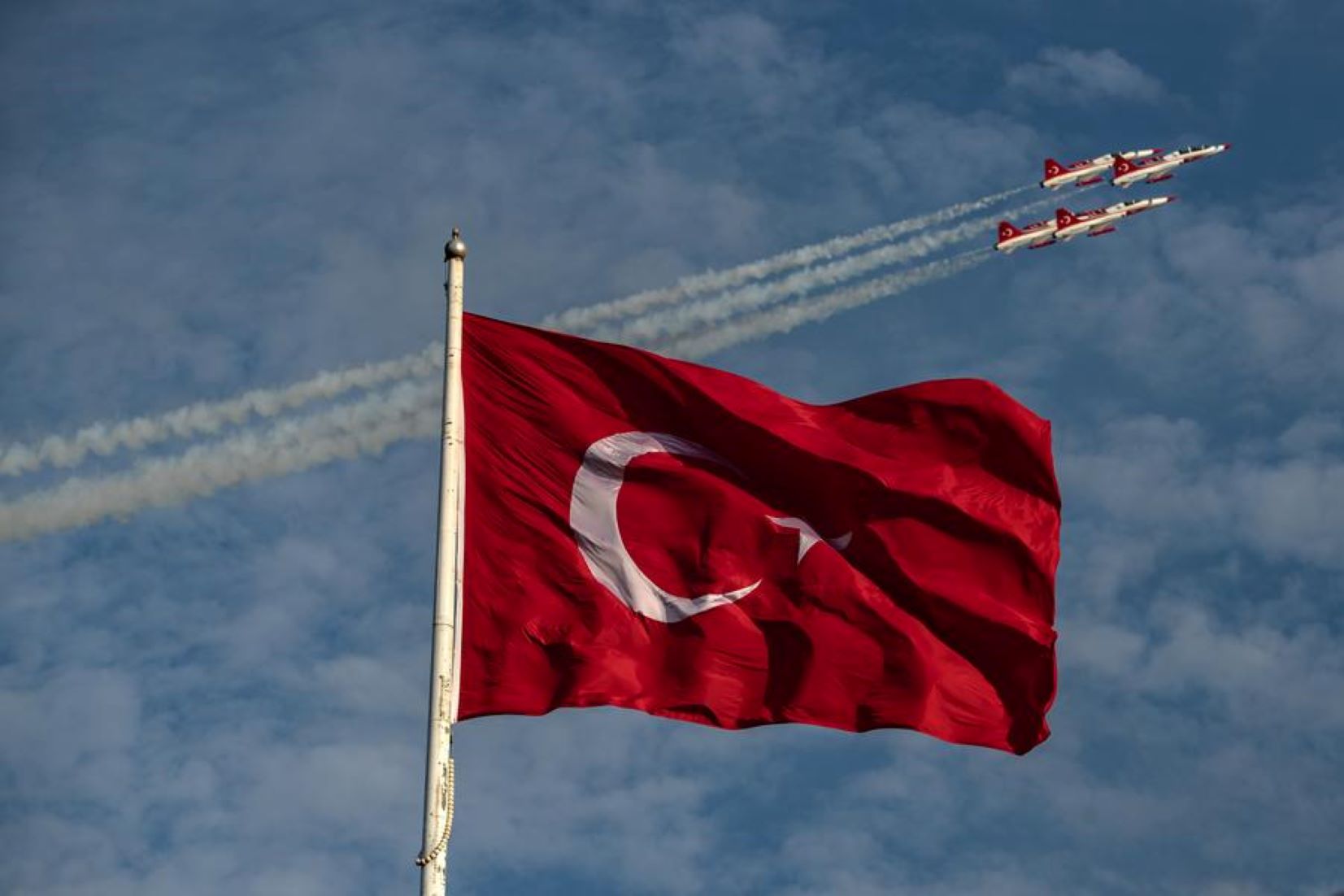by Burak Akinci
ANKARA, Dec 25 (NNN-XINHUA) — Türkiye’s foreign policy, faced significant challenges in 2023 amid regional conflicts, but it experienced both gains and setbacks in pursuing a balancing act in dealing with its Western allies and Russia.
Ankara looked beyond its traditional NATO allies towards other global powers, notably Russia, by strengthening its cooperation with Moscow.
Moreover, since early 2023, Türkiye has also sought to normalise its relations with the West, as well as, its neighbours, including Saudi Arabia, the United Arab Emirates, Egypt and Israel.
Analysts believe that Ankara will continue to adopt a strategy of diversifying its partnerships, even if it means pursuing an uneasy balancing act.
Instead of joining the West in sanctioning Moscow after the Ukraine crisis, Turkish President, Recep Tayyip Erdogan, continued mediating between Russia and Ukraine.
Ankara sought to revive a grain deal between Russia and Ukraine, that allowed for the safe export of grain, fertilisers and other food supplies, despite no apparent progress has been made until now.
Türkiye’s NATO allies, particularly the United States, criticised this approach, which in turn heightened tensions between Washington and Ankara, that have been building in recent years.
The two countries are also at odds over their Syria policy, which is a source of sporadic tensions. On Oct 4, a U.S. aircraft downed a Turkish drone in northern Syria, after it came within 500 metres of a U.S. military facility in a region controlled by Syrian Democratic Forces (SDF).
With economic woes at home due to high inflation, sharp depreciation of the currency and rising borrowing costs, Türkiye tried hard to make gains on the diplomatic front in 2023.
Since early this year, Ankara has sought to normalise its relations with regional heavyweights, including Saudi Arabia, the United Arab Emirates, Egypt and Israel.
But Türkiye experienced some setbacks in its diplomatic offensive in the region.
Ankara’s newly restored ties with Israel returned to tensions in Oct, after Israel retaliated against a surprise attack launched by Hamas in the Gaza Strip, by launching massive airstrikes, bombings and a ground offensive in Gaza, killing more than 20,000 Palestinians.
After recalling the Turkish ambassador to Israel, to protest the latter’s brutal assault on Gaza, Erdogan even accused Israeli Prime Minister, Benjamin Netanyahu of “committing war crimes” in Gaza and putting the entire region in danger for its own political survival.
On the other front, Türkiye’s normalisation with Syria remained a thorny issue despite Russia’s mediation efforts.
The return of over three million Syrian refugees was a focal point of the campaigns of presidential and parliamentary elections for all parties, amid a strong anti-refugee sentiment among the Turkish population.
Any progress there depends on reconciliation with Syria, which has conditioned mending its ties with Türkiye on Ankara’s withdrawal of troops from northern Syria, where the Turkish army has launched several offensives against Kurdish fighters since 2018.
Following his win in the presidential elections in May, Erdogan appointed his loyal intelligence chief, Hakan Fidan as foreign minister. Analysts interpreted this move as a sign that the Turkish leader will continue to pursue a foreign policy of seeking greater strategic autonomy and reinforcing its position as a middle-range power, both in the region and the world.
In recent years, relations between Türkiye and the West have deteriorated due to Türkiye’s deepening ties with Russia, clashes with the European Union (EU) nations, over democracy-related issues, assertive regional policies in the Mediterranean, and its stance on Syria.
Since his reelection in May, Erdogan has embarked on a foreign policy shift aimed at improving relations with the West.
During the NATO summit held in Lithuania in July, Erdogan endorsed Sweden’s entry into the military alliance and advocated for the revival of Türkiye’s longstanding bid to join the EU.
In Oct, Erdogan submitted a bill approving Sweden’s NATO membership bid to parliament for ratification. Observers believed that Turkish lawmakers would greenlight Sweden’s bid in a couple of weeks, after Stockholm conceded to Ankara’s demand for taking tougher actions against anti-Turkish activities on its soil.
Ankara’s endorsement of the Swedish bid shows its eagerness to anchor itself to the transatlantic community through NATO, despite its pursuit of greater strategic autonomy.
Analysts also believed that Türkiye’s foreign policy shift primarily stems from financial considerations, given Türkiye’s need to attract foreign investment to revive its struggling economy. Moreover, it does not want to jeopardise its trade ties with major Western trading partners, particularly the EU.
“There is definitely an economic incentive. Improving relations with the EU could increase foreign direct investment,” said Batu Coskun, an independent political affairs analyst based in Ankara.
During the Ukraine crisis, Ankara has also sought to increase its value to Western allies by positioning itself as an important middleman and mediator between Russia and the West.
However, the Israel-Hamas conflict has unexpectedly strained Türkiye’s ties with the West, as Erdogan has refused to label the Gaza-ruling Hamas as a “terrorist organisation,” while slamming Israel’s deadly military assault on Gaza.– NNN-XINHUA




